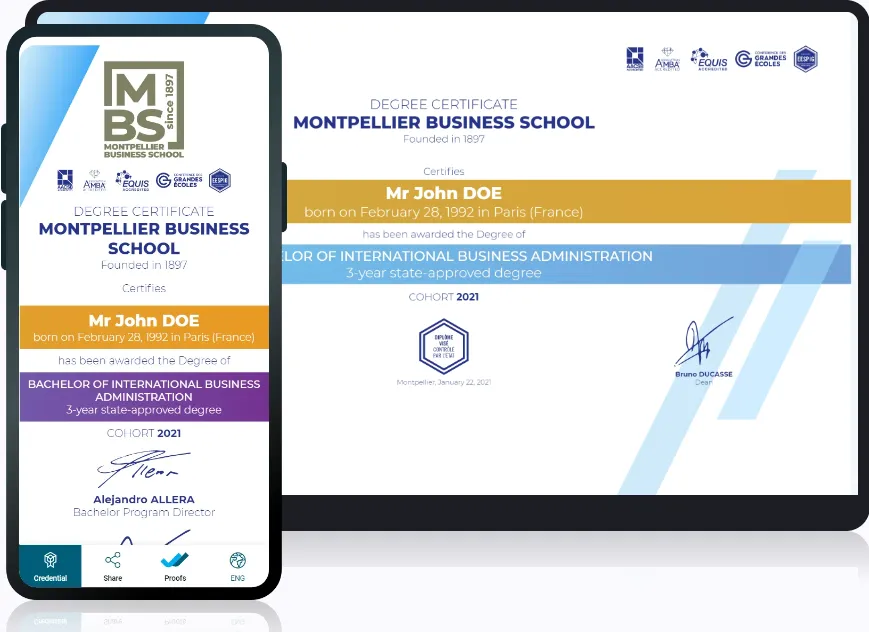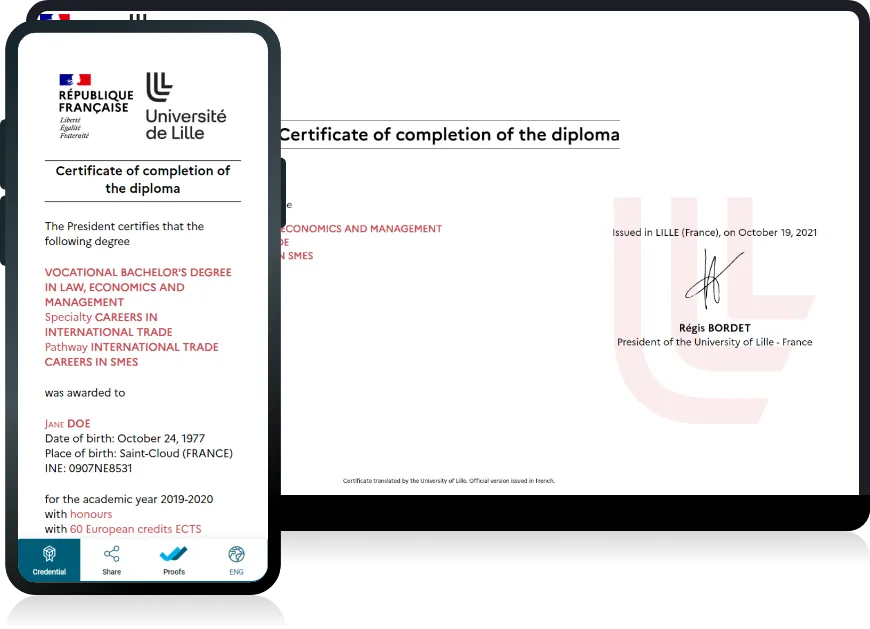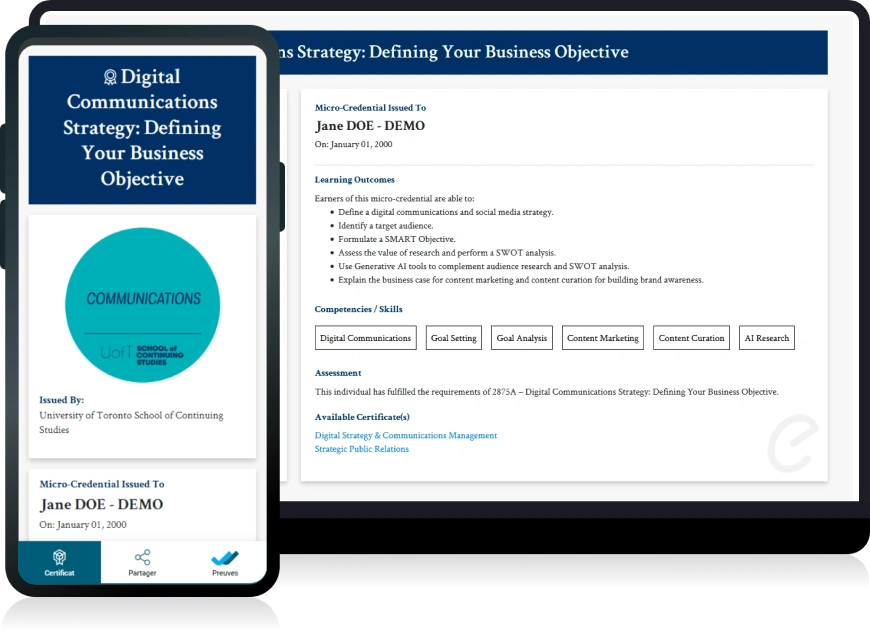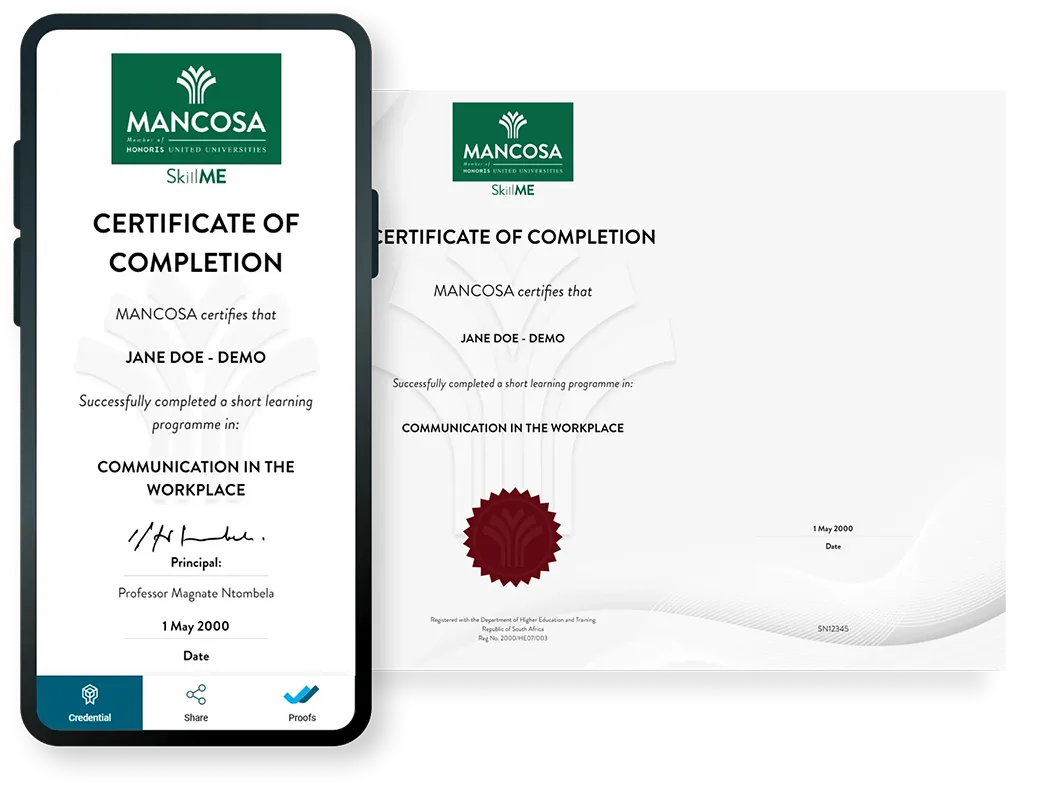Have Questions? We’re Here to Help!
Contact us for more information.
Most platforms now offer a blockchain credentials option, but the reality of the services provided varies widely. In the academic sector, it is widely acknowledged that this innovation brings crucial elements to credentials, such as security, immutability, transparency, trust, decentralization, efficiency, and enhanced student control. Additionally, major ecosystems of W3C VC now use decentralized registers to secure their issuer registries.
BCdiploma, founded in 2017 with the advent of smart contracts, stands out among major credentialing actors as the only decentralized native solution. Unlike traditional centralized platforms, BCdiploma does not rely on a centralized database. Instead, BCdiploma has patented a protocol that enables the issuance of credentials that are valid for life, without retaining learner information. Our platform eliminates the need for a centralized database, which means no retention or tracking of your students' information. This gives institutions and students full ownership and control over their credentials. Each digital credential is immutable and accessible for life, regardless of what happens to BCdiploma. This ensures that students' achievements are permanently secure and confirmable, providing a lifelong benefit that traditional credentials systems cannot match.
By leveraging this innovative tech, BCdiploma ensures that digital credentials are not only secure and tamper-proof but also easily shareable and verifiable, enhancing the overall trust and reliability of academic and professional qualifications. This approach aligns with the evolving needs of the global academic and job markets, providing a robust solution for modern credentialing challenges.There is often confusion between blockchain, a security technology, and Web3, which offers a comprehensive and mature new internet ecosystem. BCdiploma, a pioneer in web3 credentials for highered, guides you through this revolution. All credentials issued through our platform can be issued as non-transferable NFTs. BCdiploma also offers a student wallet, ensuring compatibility with usual wallets. But that's not all. BCdiploma offers open-source libraries that enable these NFT credentials and diplomas to function as lifelong login identifiers, without the need for an underlying directory.
Does this sound complex? Simply imagine being able to create lifelong accessible pages and services for your alumni, accessible through their diploma or credential. Additionally, your partners can offer exclusive services to your alumni without needing access to your graduate database. To learn more, you can consult our guide: NFT Credentials in Academics: Everything You Need to Know to Get Started.With a globalized job market and internationally renowned academic institutions, the interoperability of credentials has become a major issue in the Edtech world. By adhering to these standards and norms, educational institutions can ensure that their digital credentials are interoperable, verifiable, and widely recognized, facilitating student mobility and lifelong learning across different platforms and regions.
Open Badges is a standard published by 1EdTech (formerly known as the IMS Global Learning Consortium). Widely adopted for digital badges, featuring a rich open-source ecosystem. This standard includes metadata about the credential, ensuring transparency and interoperability across different platforms.
The World Wide Web Consortium (W3C) has developed the W3C VC standard, which enables the creation of interoperable digital credentials that can be cryptographically verified. This standard supports a wide range of credential types, ensuring they can be securely shared and trusted across different platforms and use cases. Notably, the latest version of Open Badges, v3, adheres to this standard. W3C VC are the foundation of significant institutional projects, such as the European Infrastructure EBSI and the Digital Credentials Consortium (DCC).
The European Commission launched the third version of its European Learning Model in 2023 (ELM v.3), a multilingual data model for learning, knowledge, and skills. This model opens new possibilities for interoperability and credential exchange, further enhancing the recognition and portability of digital credentials across Europe and beyond.



